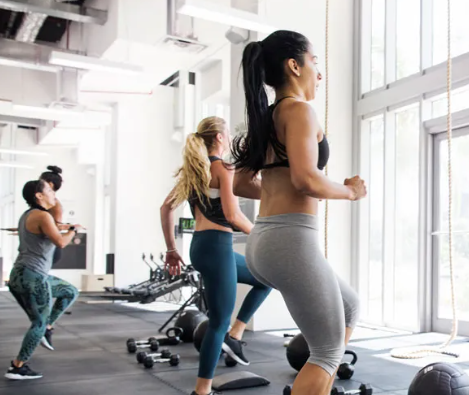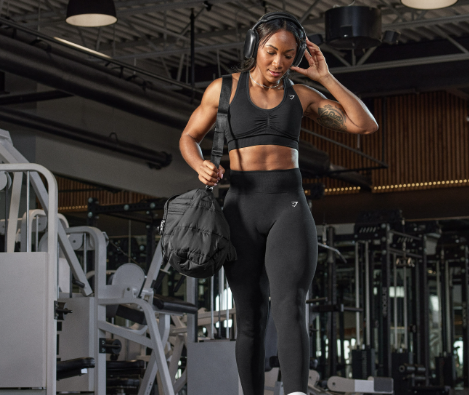
Choosing the best time to hit the gym can often feel like a never-ending dilemma. Should you workout in the morning, at lunchtime, or after work? While some people swear by morning sessions, others may struggle with the idea of working out before they’ve had their coffee. And for those who opt for evening workouts, the gym’s peak hours can make the experience a bit overwhelming.
The truth is, the best time to work out depends on a variety of factors, including your daily routine, fitness goals, and personal preferences. In this article, we’ll dive into the ideal times to visit the gym and provide tips on how to make your workout more effective, even during busy hours.
Understanding Gym Peak Hours
The first step in determining the best time for your gym sessions is to understand when the gym is busiest. Most gyms experience peak hours during late afternoons and early evenings, right after work. During this time, equipment is in high demand, and the space can feel crowded, making it harder to focus and get your workout in.
For some, this is tolerable, but for others—especially those who prefer a quieter environment—the experience can be frustrating. If you can plan your workouts during less busy times, you can enjoy more space, fewer distractions, and better access to equipment. Here’s a general idea of peak hours:
- Early mornings before work
- Mid-afternoon after lunch
- Late afternoons, especially around 5 PM when people get off work
- Weekends, particularly between 9 AM and 12 PM
If you’re unsure about the peak times specific to your gym, consult with the staff to get a better idea.
Best Time to Work Out: Morning, Noon, or Evening?
There isn’t a universally “best” time to work out, as it largely depends on your fitness goals and your personal routine. Whether you prefer early morning workouts or a late-night sweat session, the key is finding a time that suits both your goals and energy levels.
Morning Gym Routine and Its Benefits
For those who are naturally early risers, the morning can be the perfect time to hit the gym. Not only does a morning workout kickstart your metabolism, but it also allows you to take advantage of quieter gym hours. Here are some benefits and drawbacks to consider if you’re thinking of starting your day with a workout:
Pros:
- The gym tends to be less crowded
- You may burn fat more effectively, especially with fasted workouts
- Morning exercise boosts metabolism and energy levels for the day ahead
Cons:
- Not ideal for those who aren’t morning people
- Exercising on an empty stomach might not be suitable for everyone, especially if you have health concerns
Lunchtime Workouts
If mornings aren’t your thing, lunchtime could be a great alternative. A midday workout can serve as a perfect break from your work routine, helping to recharge your energy levels and refresh your focus. Additionally, many gyms are less crowded during lunch hours, so you’ll have more space and fewer people to share equipment with.
Pros:
- The gym is typically quieter during lunchtime
- A workout break can help reduce stress and improve productivity for the rest of the day
Cons:
- You might feel rushed, especially if you have a limited lunch break
- Can conflict with work meetings or your schedule
Evening Workouts and Their Perks
For many, the best time to work out is after work, when they can blow off steam and relieve the stress of the day. Evening workouts also provide an opportunity to focus on strength training, as the body is typically more fueled and ready for heavier lifts after meals. However, some might find their energy levels are too low post-work to give their best effort.
Pros:
- The gym is generally less crowded after the workday ends
- A great way to unwind and reduce stress after a long day
- Evening exercise may improve the quality of your sleep
Cons:
- Energy levels might be lower, making it harder to push through an intense workout
- It could interfere with family time or social commitments
- Some people find that working out too late can affect their ability to fall asleep
Weekend Gym Timing
Weekends are often the busiest times at most gyms. Equipment is in high demand, and finding space for floor exercises can be challenging. However, if weekends are your only option, try to avoid the peak hours (usually 9 AM to 12 PM). Early mornings or post-lunch hours are generally less crowded, giving you more flexibility and access to equipment.
Tip: Ask your gym if they offer any weekend discounts or promotions that allow you to enjoy quieter gym hours.
What to Do If the Gym Is Busy?
If you find yourself at the gym during peak hours, don’t stress! A crowded gym doesn’t have to derail your workout. Here are some strategies to make the most of busy times:
- Try alternative exercises: If your preferred equipment is occupied, switch to a different exercise that targets the same muscle groups.
- Incorporate bodyweight exercises: Push-ups, planks, and lunges can provide a great workout without the need for equipment.
- Share equipment: If possible, work with a fellow gym-goer to share weights and machines. It can be a good way to stay on track while keeping the flow of your workout moving.
- Take a brisk walk outside: If the gym is too crowded for your liking, take a break and get some fresh air with a quick walk.
Factors to Consider When Deciding the Best Time for the Gym
While some might prefer early morning workouts, others might be more suited for evening sessions. Ultimately, your ideal gym time depends on a variety of factors, including:
- Work Schedule: If your work hours are demanding, you may need to adjust your gym time around your daily commitments. Early mornings or evening workouts can help you fit in your routine without affecting your work.
- Crowds: If you prefer a quieter gym, avoid evening rush hours and weekends. Off-peak times offer fewer distractions and more space.
- Energy Levels: Choose a time that matches your energy peak. If you’re a morning person, early workouts will likely feel more productive. On the other hand, evening workouts may be better for those with higher energy after a day’s work.
- Fitness Goals: Your workout goals can also dictate the best time to go. For example, if you’re aiming to lose weight, morning fasted workouts may be more effective. For muscle building, afternoon workouts may provide better results.
The Benefits of Off-Peak Gym Hours
There are several advantages to working out during off-peak hours. These include:
- Less Crowded: Fewer people means more equipment availability and fewer distractions, allowing you to focus better on your workout.
- Better Access to Equipment: With fewer people using the machines, you won’t have to wait to use your preferred equipment.
- Quieter Environment: Off-peak hours are generally quieter, offering a more peaceful and focused workout experience.
- More Flexibility: With fewer people in the gym, you have more freedom to adjust your routine without the pressure of others waiting.
Final Thoughts
There’s no one-size-fits-all answer to when the best time to go to the gym is. It depends on your schedule, fitness goals, and personal preferences. Whether you’re an early bird or a night owl, the key is to find a time that works for you and stay consistent. If possible, aim to work out during off-peak hours for a more enjoyable and efficient gym experience. Ultimately, the best time to hit the gym is when you can make it a regular part of your routine.










